The Video Game Reboot Report Card
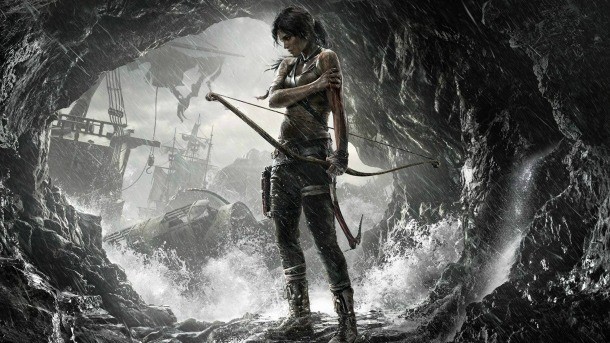
Over the past several years, reboot fever has hit the entertainment industry. Whether you're talking about film reboots like Christopher Nolan's Dark Knight trilogy or J.J. Abrams' Star Trek films, there's no denying that Hollywood has been riding this wave to the fullest. The video game industry has also decided to use the idea of rebooting a franchise to reinvigorate some of its most well-known properties that have run a little dry. Sometimes, it's little more than a marketing term, as we saw with this year's Need for Speed "reboot." Other times, however, it means an exciting new direction for a franchise that has either run out of ideas or has found itself left behind by modern industry trends. Unfortunately, for every Dark Knight trilogy, there's at least one Fantastic Four equivalent in gaming.
Check out how some of the various reboots of the game industry have fared over the years and let us know which ones you loved and hated the most.
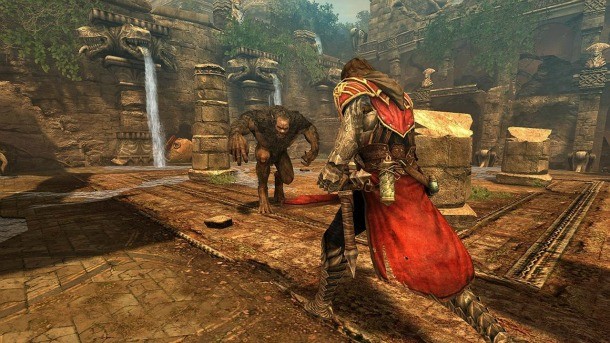
Castlevania: Lords of Shadow
After several awful 3D releases in the classic gothic action franchise, Konami, Mercury Steam, and Kojima Productions nailed it with Castlevania: Lords of Shadow. Superb action, strong platforming, and innovative boss fights deliver an awesome experience for both fans of the classic games as well as newcomers to the franchise. Unfortunately, the sequel failed to carry that momentum.
Reboot Success: High | Our Review
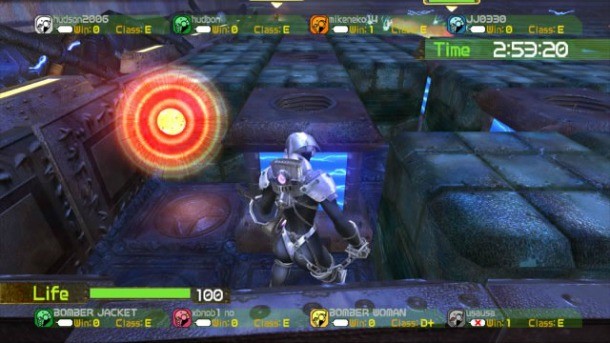
Bomberman: Act Zero
Konami and Hudson Soft tried to go for a much darker take on the Bomberman franchise, but it unfortunately blew up in their faces. The resulting game was a technical disaster that did away with much of what made the Bomberman series so much fun in the first place. Add in some long load times, a poor soundtrack, and a stupidly-named "First-Person Mode" in which you play in third-person view, and you have a game that is just plain bad.
Reboot Success: Low
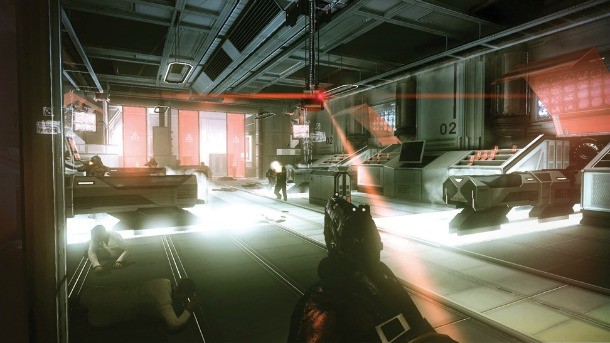
Syndicate
The leap from strategy game to first-person shooter was jarring for fans of the much-loved strategy series, but those who gave it a shot found a competent shooter that features a decently long single-player campaign, as well as a separate co-op campaign. Unfortunately, predictable mission structure prevented this game from being anything too special, but it was an interesting attempt to branch out the Syndicate series to a whole new genre.
Reboot Success: Medium | Our Review
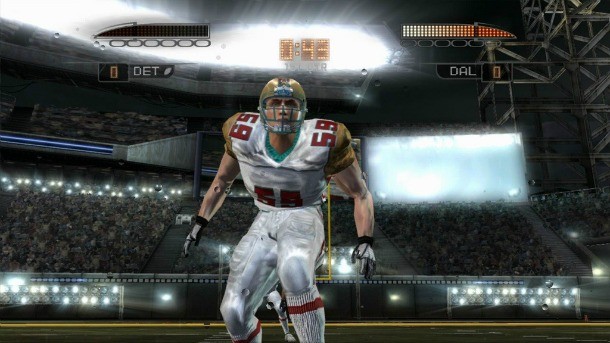
Blitz: The League
After losing the NFL license to EA's exclusivity deal with the NFL, Midway and Point of View decided to try and stick it to the man with this over-the-top reinvention of the already bombastic sports franchise. Blitz: The League upped the brutality of the play and tried to shine a light on the darker side of professional football. Have a star player get hurt in the middle of a big game? Take him to the sideline and inject him with steroids to get him back out there! Blitz: The League was also full of explicit language and nicknames that poke fun at NFL players' less marketable sides (Ron Mexico, anyone?), giving it an "M for Mature" rating from the ESRB. While this game was a satisfyingly brutal arcade football experience, the sequel was less enjoyable and didn't do well enough to keep the series going.
Reboot Success: Medium
Up next: Devils, princes, and aliens. We look at more attempts to revitalize long-running franchises on the next page.
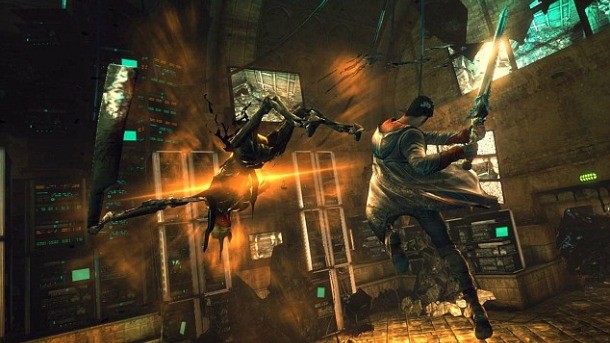
DmC: Devil May Cry
The long-running action-packed franchise got the reboot treatment through a complete reinvention of series protagonist Dante and a refreshed timeline. Ninja Theory's 2013 DmC: Devil May Cry saw the Heavenly Sword developer place its unique stamp on the combat by giving players an impressive arsenal that was surprisingly intuitive and stylish. Despite these departures, the studio kept several mainstays for the franchise, including crazy, over-the-top boss battles. In 2015, Capcom re-released DmC on modern platforms with DmC Devil May Cry: Definitive Edition.
Reboot Success: High | Our Review
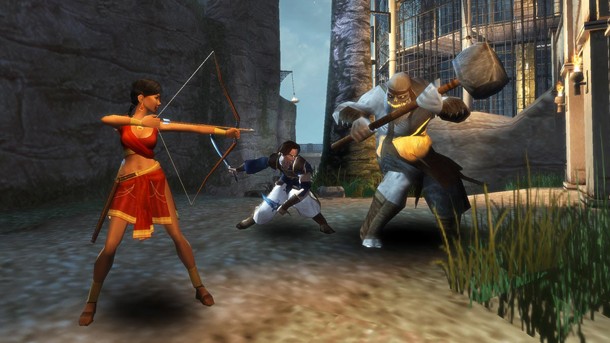
Prince of Persia: The Sands of Time
The platforming franchise made the leap to the 3D world with the innovative Prince of Persia: The Sands of Time. Directed by Patrice Désilets, the eventual creator of the Assassin's Creed franchise, Sands of Time hinted at several innovations that would take place in Ubisoft's future blockbuster series. Sands of Time did an outstanding job of changing genres to become a full-on action game while remaining firmly entrenched in the platforming genre. The game's unique take on the shifting of time mechanics combined with the superb action to deliver an experience that everyone should play at some point.
Reboot Success: High
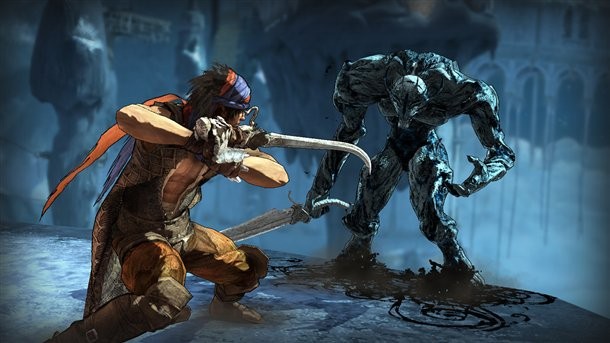
Prince of Persia (2008)
As great as Sands of Time was, Ubisoft's attempt to reboot the series yet again with 2008's Prince of Persia didn't live up to expectations. It took away the series of multi-enemy fights seen in previous games and made it so players had less control over their character during certain sequences, changing up the formula in drastic ways that not everyone was on board with. Though the game shifted too many things around to satisfy all fans, Prince of Persia was a solid experience that overflowed with style. Unfortunately for those who did enjoy this version, Ubisoft decided to return to the previous prince two years later with the less loved Forgotten Sands.
Reboot Success: Medium | Our Review
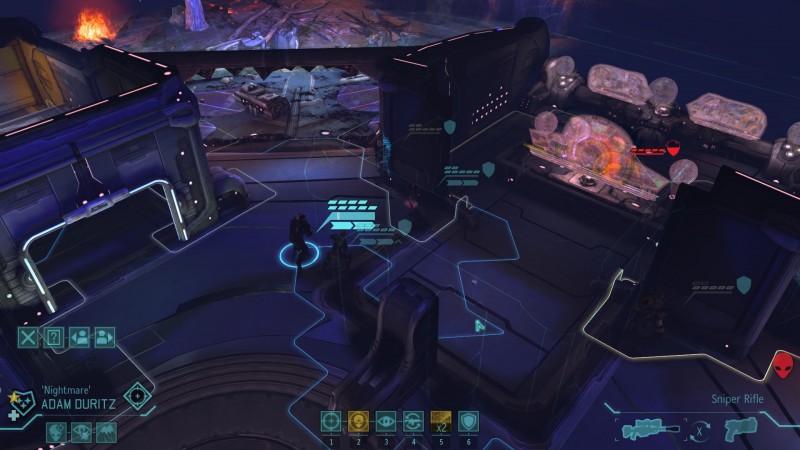
XCOM: Enemy Unknown
While not a huge departure from the original concept behind the XCOM series, Enemy Unknown rebooted the timeline and delivered gameplay mechanics that were precise and enjoyable whether you were a seasoned veteran or simply someone with a passing interest in turn-based strategy games. Nearly every part of Enemy Unknown worked together to deliver one of the best strategy games of the past decade. Enemy Unknown was such a challenging experience for players that players canonically lost the war with the extra-terrestrial threat, which leads to XCOM 2.
Reboot Success: High | Our Review
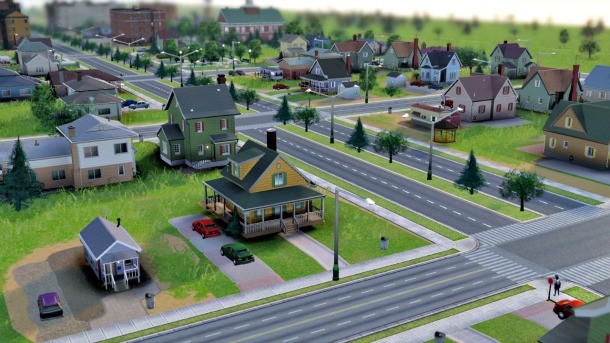
SimCity
In the '90s, SimCity was a super fun series that put the power to manage a city at your fingertips. While the 2013 reboot essentially did the same thing, its downfall was that it became less about empowering players to take control of a city and more about getting in their way through unnecessary requirements and design conventions. Whether it's the initial always-online requirement or the smaller plot sizes and weak A.I., SimCity disappointed a lot of fans. While some of the game's problems have been remedied since launch, you're probably better off checking out Cities: Skylines instead.
Reboot Success: Low | Our Review
Up next: We go commando as we look at more reboots that experienced varying levels of success.
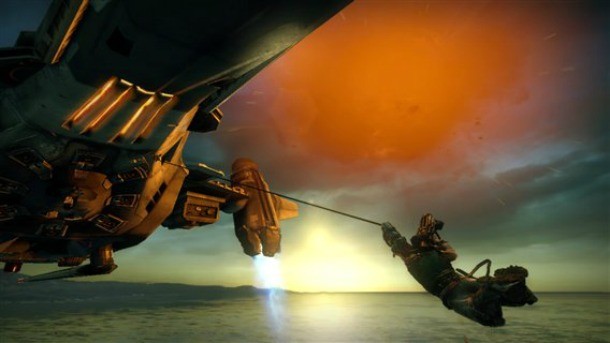
Bionic Commando
The 2D platforming title from the '80s was given a modern look and a 3D world with Capcom and Grin's 2009 Bionic Commando. The game was full of potential, but its inability to implement an enjoyable swing traversal mechanic, as well as a poor narrative and less-than-stellar level design, ultimately held it back from capitalizing on that potential for the most post. The game is not without its strengths, but the reboot fell short of expectations.
Reboot Success: Low | Our Review
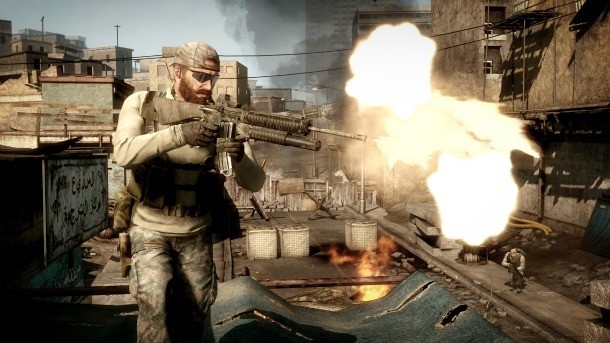
Medal of Honor
Riding the wave of success the Call of Duty franchise was experiencing at the time, EA tried its hand at revitalizing its classic first-person shooter franchise with Medal of Honor. The game wasn't an outright failure, but bland missions and lackluster multiplayer made it fail when compared to Activision's juggernaut franchise. Thankfully, the publisher came back strong the very next year with Battlefield 3, but the Medal of Honor franchise plummeted following the release of the poorly-received Medal of Honor: Warfighter.
Reboot Success: Low | Our Review
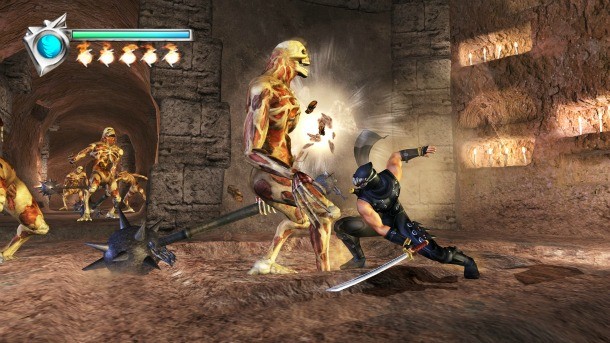
Ninja Gaiden
The awesome 2D action platformer that gained much fanfare in the '80s and '90s transitioned to become one of the best 3D action titles of its generation. With the release of the 2004 reboot, Ninja Gaiden reclaimed the uncompromising difficulty and awesome ninja action, but delivered it in a whole new way. The result was a release that shook up the series completely while staying true to what made the original games so beloved in the first place. Unfortunately, the sequels struggled to deliver the same great experience, with Ninja Gaiden 3 being a rather large blemish on what the series was in the process of accomplishing.
Reboot Success: High
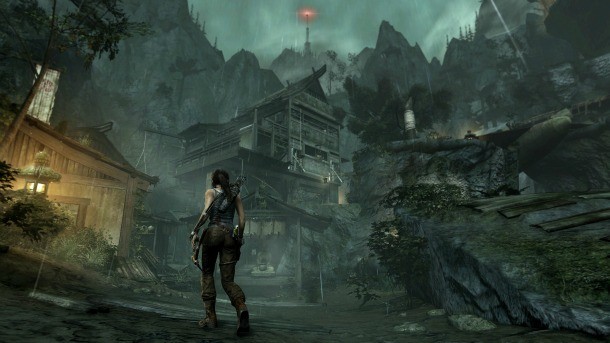
Tomb Raider
Lara Croft's evolution to a believable character is noteworthy, but the way the 2013 release by Crystal Dynamics and Square Enix brought the series back into the forefront is nothing short of amazing. The journey players went on with Lara Croft helped them fully understand how she went from mild-mannered researcher into battle-hardened adventurer. The reboot proved extremely successful, spawning a remastered edition as well as a sequel.
Reboot Success: High | Our Review
Up next: We look at some dinosaurs and hedgehogs that have gone through reboots.
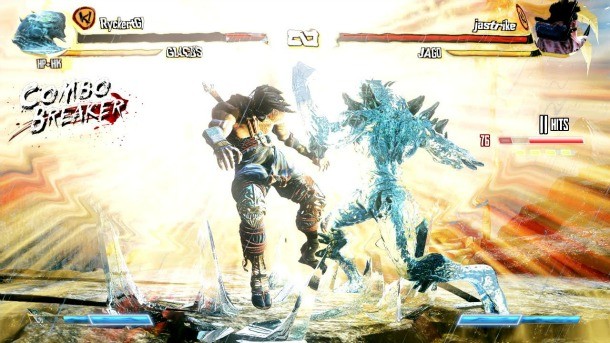
Killer Instinct
After vanishing from the face of gaming for nearly two decades, Killer Instinct burst back onto the scene in 2013 thanks to Double Helix Games and Microsoft Studios. The Xbox One launch title embraced a new content delivery method that provided players the option to buy characters à la carte rather than needing to purchase all of them. This unique implementation would be for naught if the fighting mechanics weren't on par with other top fighters, but Killer Instinct's combo-riffic gameplay was hugely success in that regard, and has since become a mainstay at many high-profile fighting game tournaments. The game's success encouraged further growth through Season 2 with Iron Galaxy at the helm.
Reboot Success: High | Our Review
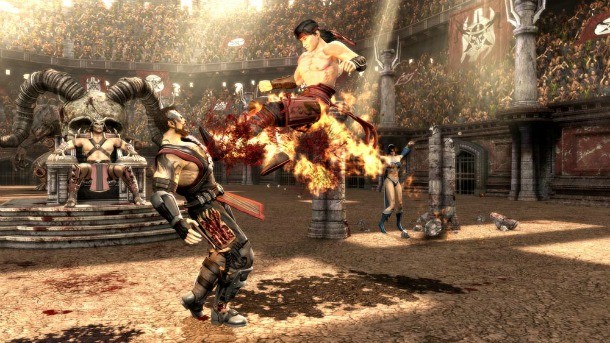
Mortal Kombat
In the '00s, the Mortal Kombat franchise was getting increasingly silly. The 3D gameplay never quite worked with the series, and the canonical killing of nearly every character at the end of Armageddon signaled that something needed to change. Following the subdued Mortal Kombat vs. DC Universe that saw Scorpion and Sub-Zero facing off against Batman and Superman, the Mortal Kombat series returned to its roots with a 2011 reboot. The interesting part is that this wasn't a typical reboot in that the developers ignored everything that happened in prior entries. Instead, the story was actually rebooted within the game's canon with Raiden going back in time to try and prevent the annihilation of the characters as depicted in Armageddon. The narrative was enjoyable, the fight mechanics returned the series to its former glory, and NetherRealm was able to keep the gore going with the successful Mortal Kombat X.
Reboot Success: High | Our Review
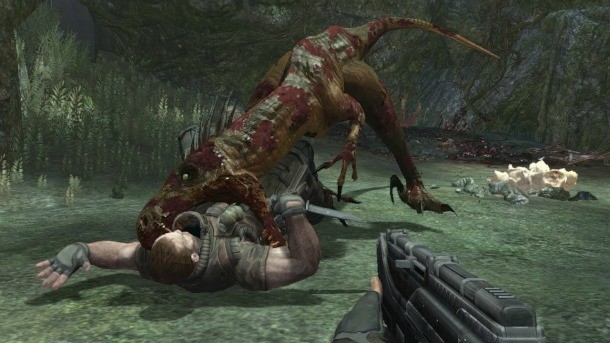
Turok
Trying to go back-to-basics, Propaganda Games did away with many of the fantastical elements of the early titles. Unfortunately, the dino-infested world felt as dead as its Jurassic inhabitants are today, and the story failed to deliver on nearly every front. Add some poor checkpointing and bland multiplayer offerings and the reboot of the acclaimed series that got its start on Nintendo 64 flopped hard on PlayStation 3, Xbox 360, and PC. We haven't seen a Turok game since this 2008 reboot attempt.
Reboot Success: Low
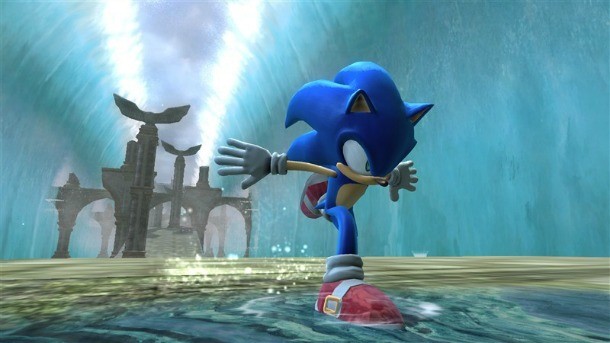
Sonic the Hedgehog (2006)
Up until the release of 2006's Sonic the Hedgehog, many of the series' die-hard fans were in denial of just how much the Blue Blur was struggling to make the leap the 3D. After Sonic 2006, however, there was no question that something was wrong with the series. The gameplay was atrocious, the graphics were sub-par, and the sound design was downright awful. The level design, which wasn't exactly great in previous 3D Sonic games, plummeted to even deeper depths, while the story made less sense than anything seen in the series to that point – including a weird romance between Sonic and a human. This reboot was so poorly received that even the Sonic the Hedgehog official Twitter account pokes fun at it on a semi-regular basis. Following this attempt at a more serious Sonic the Hedgehog game, Sega and Sonic Team doubled back and tried to be a more lighthearted franchise with varying levels of success. Regardless of where the series goes from here, Sonic the Hedgehog 2006 will always be looked back on as rock bottom for a franchise that has seen its share of struggles.
Reboot Success: Low

Get the Game Informer Print Edition!
Explore your favorite games in premium print format, delivered to your door.
- 10 issues per year
- Only $4.80 per issue
- Full digital magazine archive access
- Since 1991









